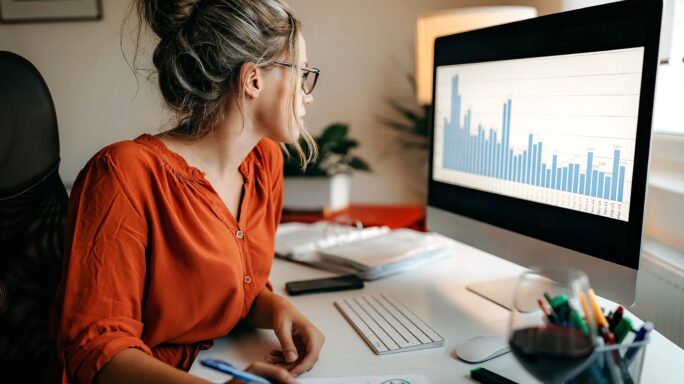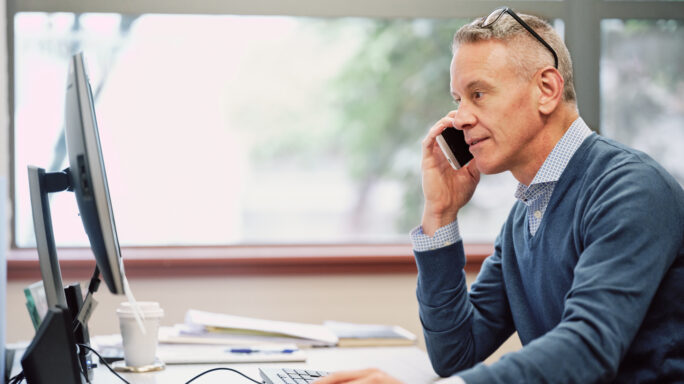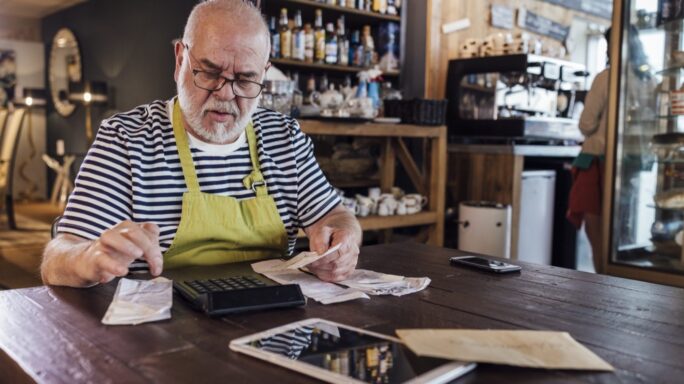Money Matters
Self-assessment expenses you can claim on your tax return
Want to know how you can reduce your company's tax bill? Here's a guide to the self-assessment expenses you can claim against your profits.

As a small business owner, it’s likely you will be aware of the approaching self-assessment tax deadline.
Read this article to learn more about self-assessment and the expenses you can claim on your tax return.
Here’s what we cover:
- An overview of self-assessment, including deadlines
- What is self-assessment?
- What self-assessment records should you keep?
- What you need to know about business expenses
- Self-assessment expenses you can claim
- How accounting software can help you to stay on track
- Final thoughts on claiming back self-assessment expenses
An overview of self-assessment, including deadlines
Your self-assessment tax return needs to be filed by 31 October 2023.
However, if you’ve signed up to the Revenue Online Service (ROS), you’ll have an additional few weeks to file and pay. In that case, your due date will be 16 November 2023.
If you’re filing for the first time or your business is relatively new, the tax process can be a minefield.
But you can lower your tax bill considerably by taking full advantage of the self-assessment expenses that you can claim.
Hopefully, you’ve been keeping careful records of all of your income and outgoings over the year. Fortunately, there are lots of apps and cloud accounting software packages that will do a lot of the work for you.
In general, expenses that relate to the operation of your business can be claimed – these include stationery, phone and broadband costs, and the cost of running a car – but they must be exclusively for business purposes.
Ensure that you are availing of other credits such as personal tax credits and other expenses such as medical care costs.
A piece of good news for business owners this year: in 2023 the Earned Income Tax Credit, which applies to most self-employed people, is €1,775.
Another effective way to lower your tax bill further is to invest in a pension – the tax-free percentage of your income is age-dependent.
Stay up to date with self-assessment
Want to keep up to speed with the latest updates on self-assessment? Sign up today to receive the Sage Advice newsletter, straight to your inbox.

What is self-assessment?
There are around 230,000 small and medium enterprises in Ireland with more than 90% of these classed as micro-businesses – with fewer than 10 employees.
As one of the above cohort, you’ll already have registered for tax as a business, either as a sole trader, partnership or limited company.
If you’re filing for the first time, you’ll need to register with ROS in advance.
The three-step process can take up to two weeks.
If you’re already familiar with the process, make sure your ROS digital certificate is up to date, otherwise you won’t be able to log on.
Among the advantages of using the online system are that the online forms have pre-populated fields and your tax liability is calculated automatically.
When you pay and file, you must submit your return for the previous year – in this case, 2022.
You’ll have paid the preliminary tax on this last year, so when filing the full return you must pay the balance of tax due.
Remember, this year’s return must include a payment of the balance of income tax for 2022 and preliminary tax for 2023.
Preliminary tax is your estimate of the tax – including income tax, Pay Related Social Insurance (PRSI) and Universal Social Charge (USC) – you’re liable to pay for the current year based on your projected profit.
If you underpay your preliminary tax, you may be charged interest. Revenue recommends you pay a minimum amount, which is equal to or exceeds one of the following:
- 90% of the tax due for 2023
- 100% of the tax due for 2022
- If you pay by direct debit, 105% of the tax due for 2021.
What self-assessment records should you keep?
As a business owner, you’ll need to keep all of the records relevant to your accounts, including invoices, petty cash books, mileage records, and bank statements.
Other documents include receipts for business-related expenditure, including fuel and office supplies.
If you haven’t already done so, send out invoices and follow up on outstanding payments.
Gather your paperwork, including invoices, receipts and bank statements, and request copies of missing documents.
As mentioned above, check that your ROS digital certificate is valid.
Finbarr O Connor, director of ITSS, a chartered tax consultancy based in Cork, advises business owners to keep “proper records” of all purchases and sales of goods and services, and all amounts received and paid out.
He recommends that you hold on to supporting documentation – invoices, bank statements, cheque stubs, and credit and debit card receipts.
While you don’t need to send these in with your tax return, you’re required to keep them for six years in the event of an audit.
What you need to know about business expenses
When we think of business expenses, some of the items that immediately come to mind are items such as office supplies and stationery, employee wages, car running costs, and phone and broadband charges.
The Revenue Commissioner states that expenses must be “directly related to the running of your business“.
Cormac Fitzgerald, managing partner with accountancy firm Fitzgerald & Partners, says: “In general terms, you can deduct expenses that are relevant to the business.
“What I say to clients is if it’s wholly and exclusively for the purpose of the business, then you can write off that as a business expense.”
The type of expenses depends on the nature of the business, says Cormac.
He adds: “So you have all the utilities, insurance, rates, overheads, phones, trade subscriptions.”
The Revenue website lists the expenses you can claim for your business.
These include:
- The purchase of goods for resale
- Employees’ pay
- Rent and utilities for your business premises
- Running costs and lease payments for vehicles or machinery
- Accountancy fees and interest paid on business loans.
In the case of a startup, pre-trading expenses for the previous three years can be claimed against your first return. Revenue details the type of expenses allowable.
These include accountancy fees, advertising costs, costs incurred in carrying out feasibility studies and preparation of a business plan.
Rent paid for the business premises can also be deductible.
One thing to note: if you’re liable and registered for Value Added Tax (VAT), your expenses claim amount should exclude the VAT portion.
Expenditure on items or services for business and personal use
If you spend money on an item or service that’s for both business and private use, you might be able to claim a deduction for the portion of the expense that is related to the business.
For example, Finbarr says if you’re self-employed and running your business from a home office, you may be able to claim a portion of your household bills, such as phone, heating and electricity.
Figuring out which expenses can be claimed isn’t always straightforward.
What about lunches out with clients or that suit you had to buy for a business meeting?
Some confusion exists between business expenses that employees can claim from their employers and expenses that can be claimed against tax.
Here are some of the most common culprits:
- Meals out: Food is considered to be a basic need, so dinner with a client cannot be claimed against tax.
- Clothing: Costs of suits and other clothing purchased to wear at work aren’t allowable. The only exception is protective clothing.
- Mileage expenses: Trips that are not wholly and directly related to the business aren’t claimable.
- Accommodation: Hotel bills are deductible if the trip is exclusively for business.
- Client entertainment: This is another cost that is a business expense but not allowable for tax purposes.
- Staff entertainment: Money spent on Christmas parties or team building days may be deductible as long as they are ‘reasonable’.
While the costs of purchasing or maintaining land, buildings or equipment can’t be written off against your profit, you may be able to claim capital allowances against this outlay.
Read more about self-assessment
- Self-assessment tax return: A guide on how to complete it
- 10 top tips for filing your self-assessment tax return
How accounting software can help you to stay on track
Filing a self-assessment tax return can be “daunting for startups”, according to Cormac Fitzgerald.
He adds: “It’s a whole new area and they’re sometimes not aware of what they can and can’t do.”
Accounting software can help to streamline the process, maximise efficiency and reduce overall costs.
Cloud-based accounting software packages typically work across all devices – mobile phones, laptops, tablets and desktop computers – so your business records are always at your fingertips.
Accounting software also offers a number of other benefits including:
- The ability to collaborate with your accountant and access your records whether you’re at the office, working from home, out and about, or on a business trip.
- Assistance with keeping track of your financials. You can amend and update records easily and run regular reports to assess income and outgoings.
- Management of payments with seamless banking transactions.
- Compliance with tax obligations. Simple completion of year-end accounts will enable easy filing of tax returns.
Cormac agrees that technology is the way to go for small business owners. More of his clients are using cloud-based packages, which makes it easier at year-end.
He says: “They have all the records. It’s cheaper because it’s time-efficient and all of the data is to hand.”
Final thoughts on claiming back self-assessment expenses
As a small business owner, you’re juggling many responsibilities: sales and marketing, product development, bookkeeping and more.
Filing your tax return may seem like yet another enormous task on top of an overwhelming list.
However, a little time spent now on working on the self-assessment expenses that you can claim can save you hundreds or even thousands of euros on your tax return.
That extra money can be reinvested into your business and pay dividends in the future.
Editor’s note: This article was first published in October 2019 and has been updated for relevance.
Self-assessment: Discover the expenses you can claim back
Learn how you can save more of your hard-earned money and ensure you pay the right amount of tax when it comes to filing your tax returns.








Hi,
Is the earned income tax credit not €1650 rather than €1500 for 2020?
Thanks
Peter
Thanks Peter, this has been updated.
Thanks, Stacey